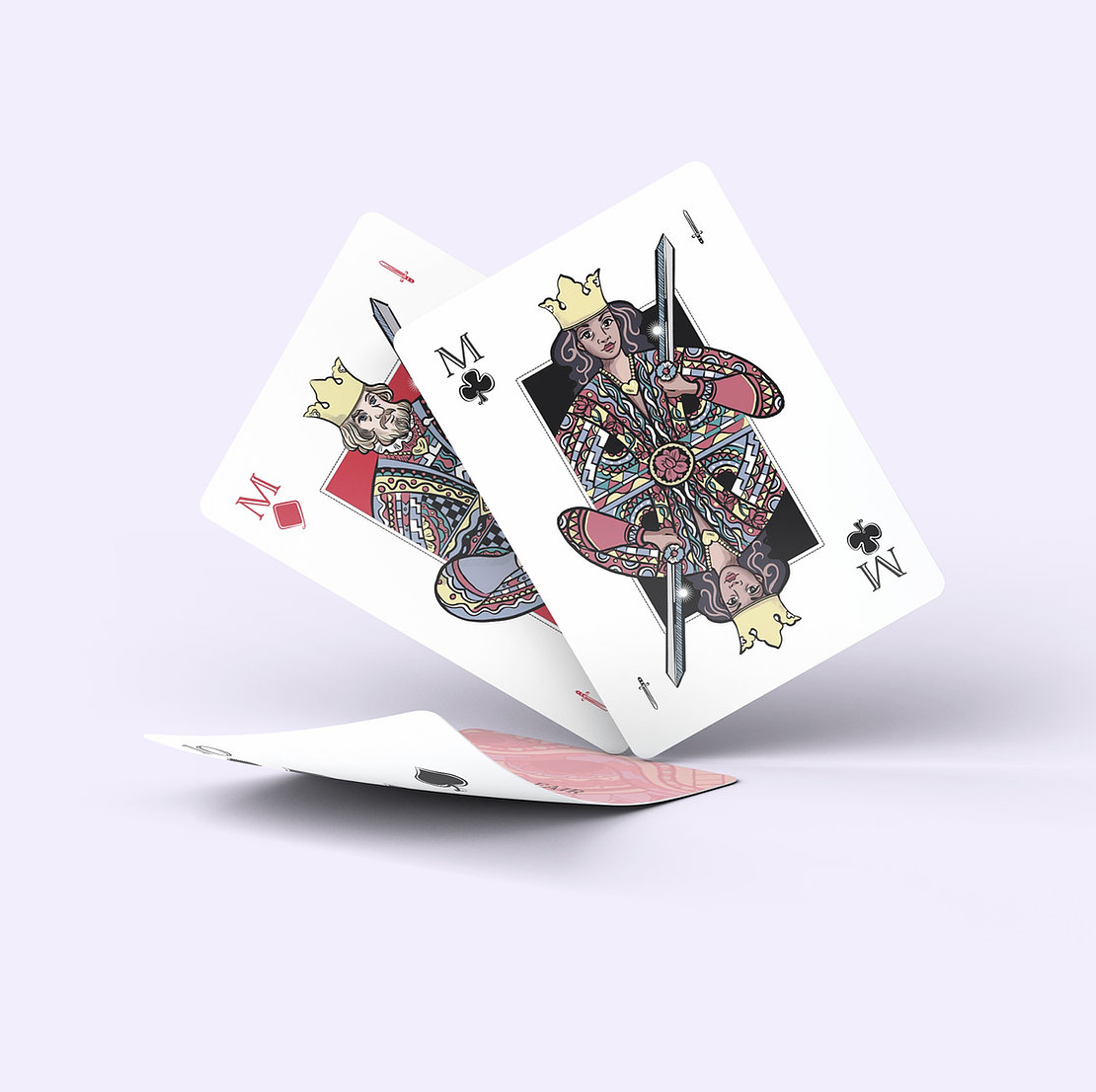
Teen designs first gender-balanced and ethnically diverse playing cards
When you pick up a deck of cards to play a game of Go-Fish, you probably aren’t thinking about how those playing cards enable systemic gender inequality.
However, Israeli 16-year-old Maayan Segal saw playing cards as a striking example of sexist norms from a young age, asking her father during a family game: “Why is the queen card worth less than the king?”. Maayan decided to take instant action. She headed to the drafting board and created the first-ever gender-balanced deck of cards. Maayan branded the deck with the name “Queeng”—a gender-balanced combination of “queen” and “king.” Her project has been immensely successful, garnering coverage from CNN, USA Today, and The Jerusalem Posti. Maayan has sold over 50,000 decks in one year, amassing more than a half million dollars from backers who invested in the first edition of the cards.
Maayan began hearing feedback that Queeng was not totally representative of global diversity. She realized she needed to revise the cards’ design to be more ethnically diverse because, according to Queeng’s website, “if we are going to give these cards to kids to hold in their hands and play with, don’t we want them to see an accurate depiction of the world?!”.
Queeng’s second edition was born; Maayan introduced a variety of new skin tones and facial features to the deck, aiming to supplement the already-existing gender inclusivity with a more ethnically diverse design.
You may be wondering: this sounds beautiful in theory, but are these cards actually functional in a basic card game? With her entrepreneurial brilliance, Maayan’s alterations do indeed work seamlessly in all games played with a traditional deck of cards.
Queeng’s second edition, which hit the market in March, replaces Kings with male and female “monarchs” (marked with the letter “M” on the card). In place of Queens, Maayan introduced “dukes” and “duchesses” (marked with the letter “D”). Finally, Maayan removed Jacks from the deck, replacing them with “princes” and “princesses” (marked with the letter “P”). So, yes—while playing with a Queengs deck, a game will still have a winner. Just without the harmful gender stereotypes.
Read more about Maayan’s cards—and buy some for yourself—on her website.


 Previous
Previous
